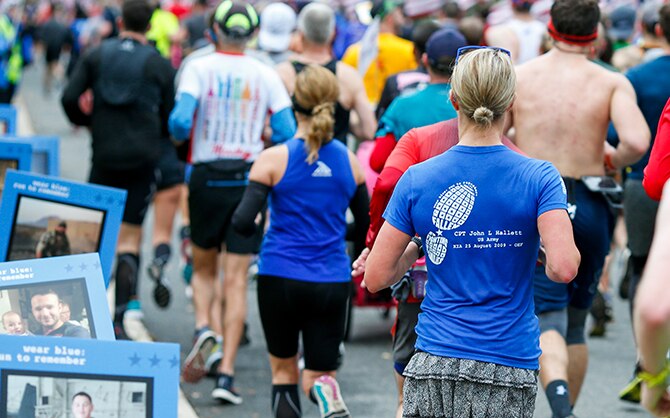Process your emotions while running

Sometimes life gets a bit heavy. Regular runs can help you sort through difficult feelings, unburden you from the daily grind, and spark new ideas.
Running for good mental health
Getting into a good running routine is an excellent way to improve your physical health.
Many experts agree that running can be good for your brain, too.
In 2018, “The Lancet Psychiatry” published a study of 1.2 million Americans that found people who exercise regularly have 43.2% less days of “not good” mental health per month compared to those who don’t exercise regularly. These “not good” days were characterised by heightened emotional distress.
The same study showed that the gap in good mental health for people who exercised regularly and those who didn’t was much larger than other factors like education, body mass index, and socio-economic status.
The takeaway? If you run regularly, you probably experience more better mental health days than not.
Runfulness in action
Lisa Hallet is a real-life example of the power of Runfulness. She co-founded Wear Blue: Run to Remember, a running community that honours the sacrifice and service of the American military.
The organisation hosts its Saturday Runs — weekly, no-costs community runs — across the US Wear Blue also offers a number of programmes that support Gold Star families and active-duty service people through races, training and mentoring.
The sport for Lisa Hallett took on new meaning in 2009 after her husband John was killed in Southern Afghanistan. The young mother of three was already an avid runner, but she turned to the sport to help cope with the devastating loss.

“Running changed from a hobby to a way of life after my husband John was killed. I pounded the pavement. In the distance and sweat of the workout, I found the space to be raw and vulnerable. A place where I could grieve, heal, and get stronger”, she said.
Hallett embraced running to help navigate the grieving process. She didn’t turn to the sport to forget her husband or her feelings of loss — it was about processing her emotions, and in that journey she helped create something bigger than herself.
Explore more about Runfulness
The act of running won’t magically fix the thing that’s causing your emotions to go topsy turvy. If it did, we might all be runners.
Instead, experiencing Runfulness is about creating a time and space that can help you solve problems and inspire new ideas. Whether you’re going through a breakup, dealing with work stress, or grieving the loss of a loved one, Runfulness can offer a path to a better place.
